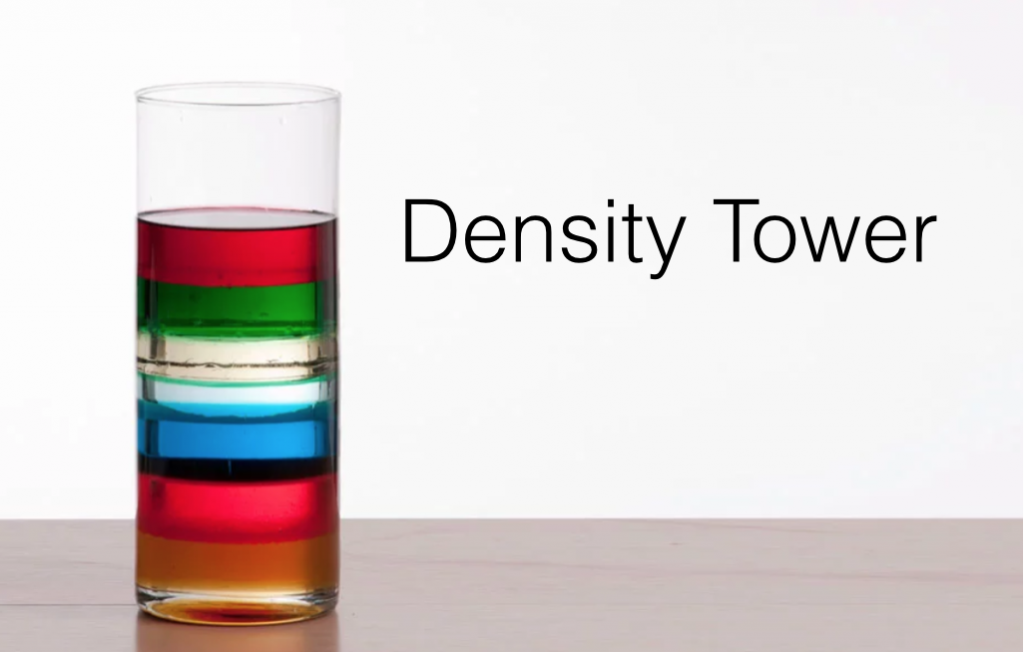Density Tower
Supplies, instructions, resources, and worksheets are below!

Density Tower
Project Description
The 3 states of matter are solids, liquids, and gases. Density is a measure of the amount of mass contained in a unit of volume. The general trend is that most gases are less dense than liquids, and liquids are less dense than solids, but there are many exceptions. In this STEM project, you’ll make a Density Tower to learn why things float or sink.
Activity Time
2 Hours
Supplies Recommended
Investigative Worksheet
A tall glass
honey
corn syrup
dawn dish soap
water
vegetable oil
91% isopropyl alcohol
lamp oil
food coloring
screw, nail, or coin
plastic bottle cap
grape or cherry tomato
Learning Objectives
Understand that mass has different densities
Understand why some things float and others sink
Understand the formula for density
Vocabulary Terms to Understand
Look up each word and write their definition on paper.
Archimedes principle
atmospheric pressure
buoyancy
buoyant force
density
diffusion
displaced
floating
force
gravity
mass
pressure
pascal
newton
sinking
units of density
units of volume
volume
Instructional Videos
Instructions
1. Print the Investigative Worksheet..
2. Watch the instructional video above.
3. Explore the learning Resources below.
4. Look up the density for each one of the liquids you will use, and write each one on your Investigative Worksheet.
5. Add your liquid ingredients to your tall glass as shown in the video above.
6. Let the liquids settle.
7. Document your findings on the Investigative Worksheet.
Questions
Which liquid ingredients have the most density?
What happens to the ingredients that have the most density?
Why do objects sink or float?
Resources
Density for Kids
Ducksters: Mass & Weight
How Do I Calculate Density?
Density Physical Properties
Table of Densities of Common Substances
Density and Its Applications
Seven Layer Density Column
Alternative Density Experiment Resources
Alternative Density Experiment: Stacking Liquids
Archimedes Principle
Archimedes
